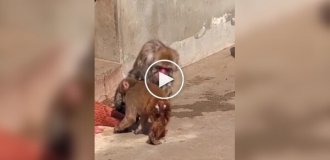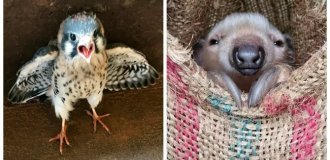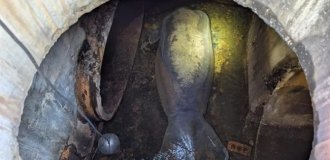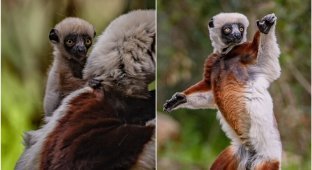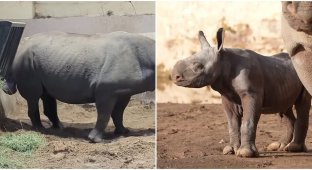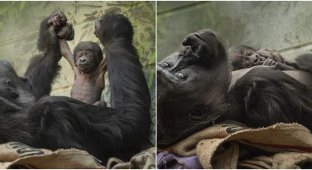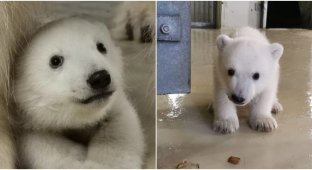Animal rights activists have documented the birth of a spider monkey in the wild for the first time (6 photos + 1 video)
For the first time in history, a team of photographers witnessed the critically endangered brown-headed koata giving birth... which almost ended in tragedy. The newborn primate was hanging 15 meters above the ground, holding on to its umbilical cord. 
The newborn cub was given the nickname Anku. He was born on January 22 this year in the jungle of Choco, a tropical forest in northwestern Ecuador.
Co-founders of the conservation group, who obtained the historical video, said that Anku spent the first moments of his life hanging about 15 meters from the ground, holding only his umbilical cord.
The team feared that the baby might fall and die. Fortunately, this did not happen.
Witnessing a brown-headed coata giving birth is extremely rare, in part because the primate species typically gives birth at night, said ecologist Felipe Alfonso-Cortez, co-founder of the group Proyecto Washu, which released the video.
Biologists at Proyecto Washu had never seen anything like this before, despite studying the species in Ecuador for the past 10 years. The brown-headed coata is one of the 25 most endangered primates on Earth.
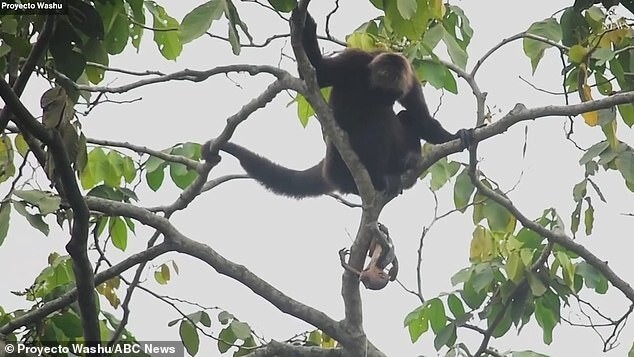
The habitat of this monkey extends from western Panama to the western border of Colombia and northwestern Ecuador. However, throughout this region of Latin America, Coats are being displaced from their homes by human activity such as deforestation for pastures and plantations. And coatats need trees to survive. They do not descend to the ground so as not to become prey for predators.
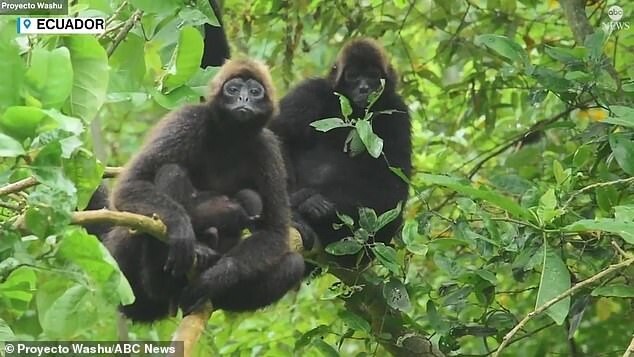
The problem is aggravated by other factors that are characteristic only of the brown-headed spider monkey, in particular, the long average life expectancy of primates and the long period of feeding and raising offspring.
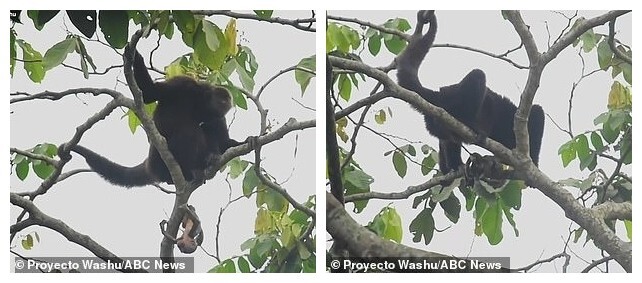
A pregnant brown-headed coata (Ateles fusciceps) typically takes more than seven months to carry its young, and after birth it may require care for up to four years. And those long four years, the researchers say, are unlikely to result in another pregnancy, delaying efforts to boost the endangered monkey population. It often takes at least that long for the next pregnancy to occur.
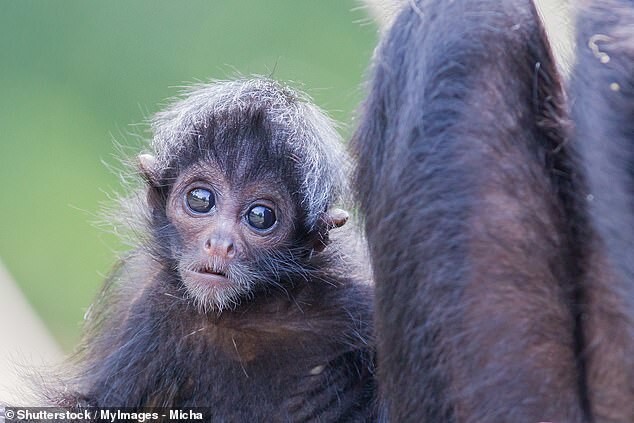
Another factor contributing to the decline in spider monkey populations is the species' longevity, which means older monkeys compete with younger ones for shrinking living space.
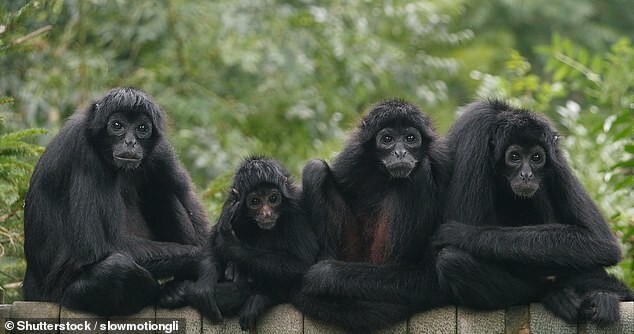
The lifespan of the brown-headed coata is 15-20 years. Alfonso-Cortez, a biologist and coordinator of the Proyecto Washu project, said the birth of baby Anku was a surprise because his mother, Aravi, is estimated to be 25 years old. And this is a lot for a spider monkey. Aravi has not had any offspring for the past eight years, Alfonso-Cortez said.
Organizations like Proyecto Washu play a critical role in solving complex environmental problems, from climate change to habitat restoration for rare and endangered species.

